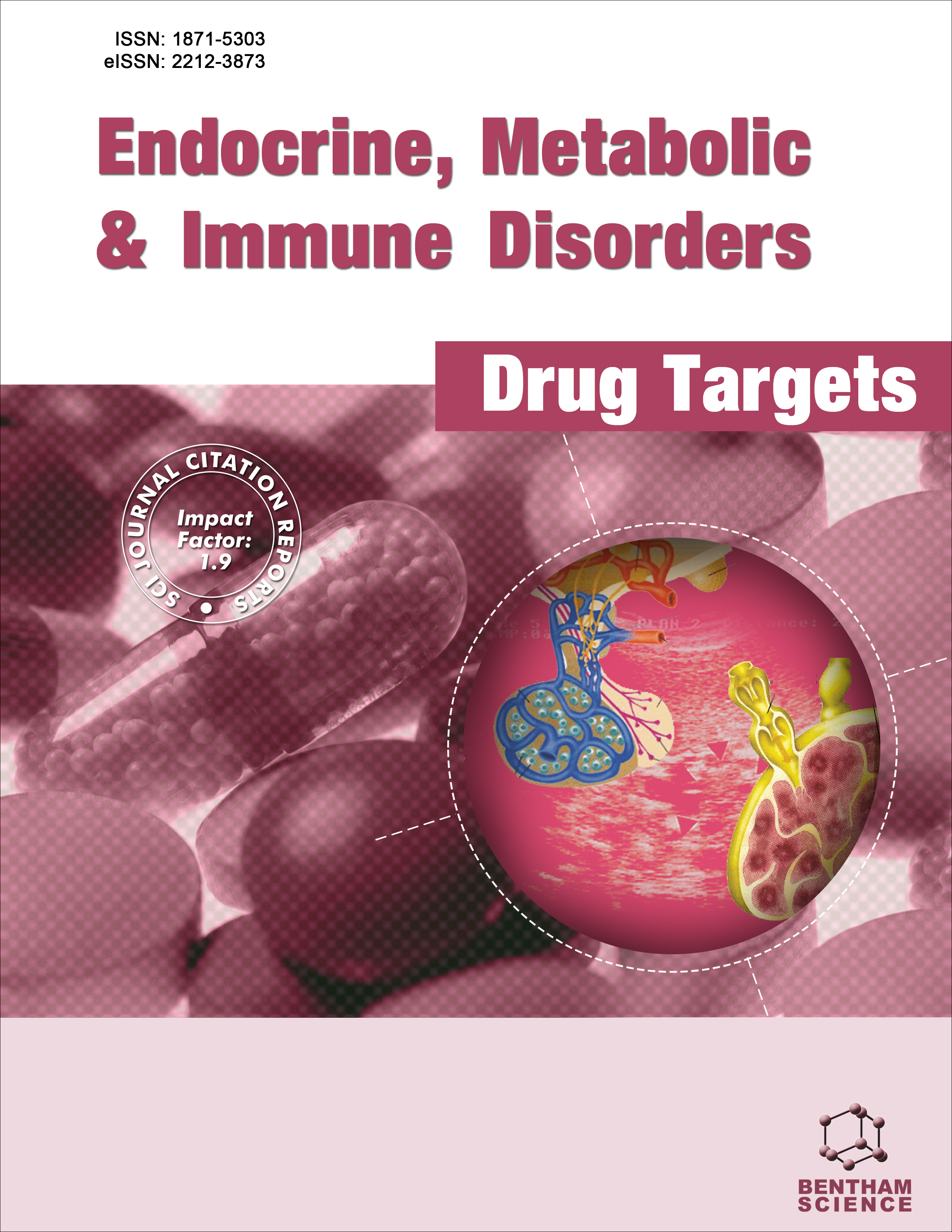-
s Unfavorable Outcomes in Solid and Spongiform Thyroid Nodules Treated with Laser Ablation. A 5-Year Follow-up Retrospective Study
- Source: Endocrine, Metabolic & Immune Disorders-Drug Targets, Volume 19, Issue 7, Nov 2019, p. 1041 - 1045
-
- 01 Nov 2019
Abstract
Objective: Laser Ablation (LA) is a therapeutic modality for reducing the volume of large benign thyroid nodules. This retrospective study was aimed at assessing the outcome of LA in patients with benign nonfunctioning thyroid nodules in a 5-years follow-up. Methods: Sixty-two patients (47 females; mean age 54.7±12 yr) with benign cold thyroid nodules underwent LA from July 2009 to March 2012. Nodule volume, thyroid function test, and ultrasound were monitored at baseline, and at 3, 6 and 12 months after the procedure, then annually. After dividing nodules in solid and spongiform, we evaluated unfavourable outcomes: 1) nodule’s volume reduction <50%; 2) need for surgery; 3) need for additive LA session (due to nodule re-growth with persistence of cosmetic concern or compressive symptoms). Results: Baseline volume did not differ between solid and spongiform nodules as well as energy delivered and the number of needles used. Unfavourable outcomes occurred in 24 patients (38.7%). Nineteen/ 24 (79.2%) patients who experienced unfavourable outcomes belonged to the solid nodules group (P<0.01). When considering only those who benefited from LA, the 5-years reduction was 59.7% for solid and 78.6% for spongiform nodules (P<0.05). One/6 patients who underwent surgery (solid nodules group) had a final diagnosis of Follicular Variant of Papillary Thyroid Cancer (FVPTC). Conclusion: Large solid nodules, unlike spongiform, submitted to LA are characterized by a long-term unfavourable outcome and entail a potential risk of false negative cytologic results.


